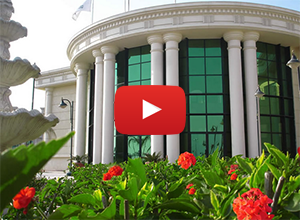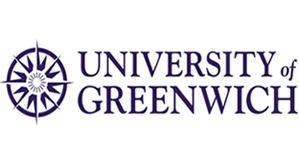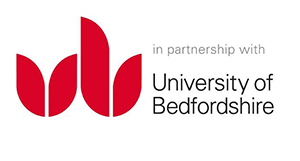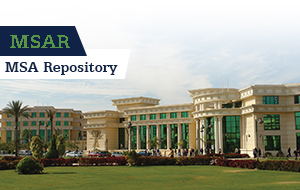Activities related to Academia
1: Academic Field Trips
Academic field trips are the enjoyable element of education. Field trips enhance significantly the content introduced in a course through conveying certain elements that cannot be illustrated with a broad spectrum in classrooms. There are several courses in the Faculty of Biotechnology that include going on field trips. One of the main courses that involve various field trips is the "Industrial Project" and "Cell and Tissue culture". The Industrial project promotes a spectrum of benefits to the students. It allows them to be exposed to various fields which are an opportunity to aspire them creatively and professionally. We intend to visit various sites as the ones mentioned in the following table.
| Accommodating Hosts | Course & Coordinator(s) | Location |
|---|---|---|
| Milk Factory Company | Industrial Project | Giza |
| Glucose and Starch Factory | Industrial Project | 15th of May city |
| Egyptian Company for solid waste | Industrial Project | 15th of May city |
| Nano- Technology Centre | Industrial Project | 6th of October city |
| Ice man Factory | Industrial Project | 6th of October city |
| Central palm of tissue culture | Cell and Tissue culture | Giza |
| Stem Cell Laboratory | Stem Cell |
Alex –Agricultural road |
| Stem Cell Bank | Stem Cell |
Alex –Agricultural road |
| Johayna | Biochemical Engineering | 6th of October city |
| Agricultural Genetics Engineering Research Institute | Advanced Genetics & Molecular Genetics | Giza |
2: Academic Speakers
From time to time the faculty invites Academic speakers from other institutions to discuss the different disciplines of science. This provides the chance for students to comprehend the opportunities, responsibilities and experience of the professional career in the spoken of field. The industrial project course highlights their importance since it aims to inspire our thriving young scientists through the exposure of the expertise of the renowned speaker. The faculty intends to invite the following speakers to cover the stated topics mentioned in the following table:
| Accommodated Academic Speaker | Topic/ Field |
|---|---|
| Dr. Joaquin Lanz | Flavor and Natural Juice solutions |
| Dr. Hamdy Amera | Cell Culture |
| Prof Sherif Nashaat Amin | Medical Test |
| Dr. Yasser Y. Ibrahim | Apis- mollifier Biotechnology |
| Dr. Mohamed Ismail | Aquamarine |
| Dr. Heba Salah | Prenatal Diagnosis |
3: Graduation Projects:
The biotechnology faculty is renowned for its graduation projects. Each year we always aim to introduce a new scientific field into the process of the graduation projects. We plan to add more accommodating hosts to the already existing directory. The following are the list of hosts we intend to send our students to this upcoming year.
| Accommodating Host | |
|---|---|
| 1. Medical Forensic Authority. | 13. Marine Biotechnology |
| 2. Stem cells Lab. | 14. Molecular Cancer Lab |
| 3. 57375 hospital. | 15. Theodore Bilharz |
| 4. VACSERA. | 16. Bioinformatics |
| 5. Egyptian Waste treatment company. | 17. Cairo Gene lab |
| 6. Nanotechnology Centre. | 18. Nile Centre |
| 7. Qaser El Eni Hospital Genetic Counseling. | 19. Delta Aromatic |
| 8. Central lab for Data Palm Research and Development. | 20.Agricultural Genetic Engineering Research Institute |
| 9. Biotechnology Centre. | 21.Faculty of Science Cairo University |
| 10. Central Analysis Lab. | 22. Helwan University |
| 11. National Research Center. | 23. Faculty of Science, Ain Shams |
| 12. El Sadat city. | 24. Faculty of Agriculture ,Cairo university |
4: Summer Training
Trainings are a fundamental tool used in the Faculty of Biotechnology. The training programs provided allows students to develop areas that suit their particular needs. During our trainings, attendees have the opportunity to interact with others from different organizations and different industries. These diverse perspectives allow students to explore innovative approaches to solve common issues. The variety of trainings offered permits learning, developing and interacting without the distractions of the everyday student duties. In addition it broadens the mind, raises issues and challenges the theoretical concept attained. Several institutes have accommodated our students for training. We plan to add training in more field than the already existing fields offered. The following is a list of accommodating hosts that we sent our students to and planning to add for the upcoming year.
| Training Name | Topic of interest | Targeted students |
Intended Duration "Total No. of Hours " |
Intended No. of delivered Session(s) | Location |
|---|---|---|---|---|---|
| 57357 hospital children's cancer |
Molecular biology Virology Hematology |
Level 3 and 4 | 30 hours | 200 | Cairo |
| Plant Tissue Culture | Tissue culture | Level 2,3 and 4 | 35 hours | 120 | Cairo |
| Analytical Analysis | Biochemistry | Level 1,2,3 and 4 | 60 hours | 100 | Cairo |
| Marine Biotechnology | Molecular biology | Level 1,2,3 and 4 | 35 hours | 20 | Marssa Allam |
| Egyptian Centre for Research and Security Studies | DNA forensics | Level 1,2,3 and 4 | 21 hours | 50 | Cairo |
| National Academic Dubai |
Soft skills. DNA and security. |
Level 1,2,3 and 4 | 3 weeks | 40 | Dubai |
|
Greenwich University UK |
Molecular genetics | Level 2,3 and 4 | 2 weeks | 10 | England |
Horizons of Biotechnology Workshop Spring 2015. “Complex Genome Analysis activities”.
Based on the community research of the European Commission that called “Biotechnology 2020”, nine different
teams of the students of the complex genome analysis class are presenting several approaches that could be used in
different applications of biotechnology.
For more information :
download the workshop flyer.
Transient expression of beta-glucuronidase in new hybrid of fine extra- long staple Egyptian cotton seedlings following biolistic particle bombardment
Momtaz, O. A., O. S. Hassan. and M. A. Madkour (1993).Transient expression of beta-glucuronidase in new hybrid of fine extra- long staple Egyptian cotton seedlings following biolistic particle bombardment. p. 243-251. Proceedings of the Working Group “Cotton Biotechnology” of the FAO-Inter-Regional Cooperative Research Network on Cotton, October 1993, Leuven, Belgium.
Isolation and purification of ribonucleic acid from highly polyphenolic Egyptian cotton (Gossypium barbadense)
Momtaz, O. A., O. S. Hassan, A. E. Elawady and M. A. Madkour.(1994).Isolation and purification of ribonucleic acid from highly polyphenolic Egyptian cotton (Gossypium barbadense). p. 652-654. In D.J. Herber and D.A. Ritcher (eds.), Proc. Beltwide Cotton Conf., Cotton Improvement Conf., January 4-8, 1994, San Diego, CA. The National Cotton Council of America, Memphis, TN.
(Thesis) Molecular characterization of heat response of some Egyptian cotton varieties. M.Sc. thesis, Cairo University Library, Cairo.
Hassan, O. S. (1997).(Thesis) Molecular characterization of heat response of some Egyptian cotton varieties. M.Sc. thesis, Cairo University Library, Cairo.
Role of Genetic Engineering in the Prevention of Insect Born Diseases. 5th Annual International Ain Shams Medical Students Congress
Magda H. Radi, Ayman A. Diab, and Osama A. Diab (1997).Role of Genetic Engineering in the Prevention of Insect Born Diseases. 5th Annual International Ain Shams Medical Students Congress.
Development of Transgenic Egyptian Cotton Varieties (Gossypium barbadense) from Meristematic Tissue
Momtaz, O.A., Diab A.A., and Madkour M.A. (1998).Development of Transgenic Egyptian Cotton Varieties (Gossypium barbadense) from Meristematic Tissue. Proceedings of Beltwide cotton conferences, San Antonio, Texas, USA. P 513-516.
Elucidation of the relative contribution of the two alternative pathways for polyamine biogenesis in plants suggests a key role for the putrescine pool in controlling flux to the higher polyamines
Teresa Capell, Olivia Lepri, Ludovic Bassie, Pham Trung-Nghia, Pham Thu-Hang, Gehan Safwat and Paul Christou. (1999).Elucidation of the relative contribution of the two alternative pathways for polyamine biogenesis in plants suggests a key role for the putrescine pool in controlling flux to the higher polyamines. Rice Genetics Newsletter 17, 105-109.
Modulation of polyamine biosynthesis in rice in constitutive expression of oat adc cDNA
Capell T., Lepri O., Hang P., Bassie L., Nogueira N., El-Hussieny G., Newman J., Christou P. (1999).Modulation of polyamine biosynthesis in rice in constitutive expression of oat adc cDNA. Rice Genetics Newsletter 16, 140-143.
Validated by:
Who's Online
We have 1131 guests and no members online
MSA University Campus Map
Main Office - 6th Oct. Campus
26 July Mehwar Road intersection with Wahat Road, 6th October City. Egypt.
Tel. : 3837-1113
Tel. : 3837-1115
Tel. : 3837-1516
Tel. : 3837-1519
Admission Office: admission@msa.edu.eg
Graduates Affairs: sgaffairs@msa.edu.eg
Mobile: 01270447292
Hotline : 16672
International Hotline: 002-0216672















